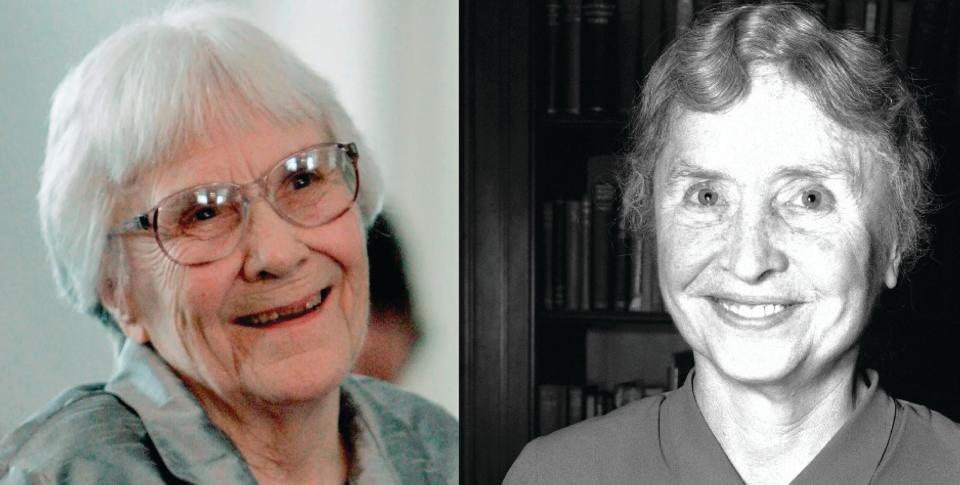Helen Keller and Harper Lee spoke powerful truths

As a white youth in segregation era Alabama, I had a passion for reading. It was passed down to me, as Alabamians say, from my grandmother. Several neighbors shared their passion for reading as well.
Until Alabama author Harper Lee (1926-2016) had a bestselling and Pulitzer Prize-winning novel “To Kill a Mockingbird,” Alabama author and activist Helen Keller (1880-1968), born deaf and blind, was revered across the state. My grandmother so loved Keller that she named my mom Helen.

In 1960s era Alabama, both Keller and Lee were constantly in the news. Keller’s autobiography “The Story of My Life” became the Tony-winning Broadway play and Academy Award-winning film “The Miracle Worker.” Acclaimed actress Patty Duke (1946-2016) won the Best Supporting Academy Award for her role as Keller. Actress Anne Bancroft (1931-2005) won the Best Actress Award for her role as “miracle worker” Anne Sullivan (1866-1936), the teacher who helped Keller learn to read, write, and speak. Bancroft also won the Tony for the same role.
Lee’s “To Kill a Mockingbird,” published in 1960, was also a successful and Academy Award-winning film of the same name. Actor Gregory Peck (1916-2003) won the Academy Award for Best Actor as Atticus Finch. The film won other Academy Awards as well as many other film awards.
Both films were released in 1962. At the time, I was a 7 year-old in a segregated Alabama elementary school. Alabamians were proud of the success of these films and the Alabama authors.
Both Keller and Lee received the Presidential Medal of Freedom. In 1963, President John F. Kennedy announced he would give the Medal to Miss Keller. After Kennedy’s assassination, President Lyndon Johnson presented the Medal to Miss Keller.
In 2007, President George W. Bush awarded Miss Lee the Presidential Medal of Freedom. In 2010, President Barack Obama awarded Lee the National Medal of the Arts and National Humanities Medal.
In 1960, the Broadway production of “The Miracle Worker” won five Tony Awards, including Best Play and Best Actress in a Drama, Miss Bancroft.
In 2018, Lee’s “To Kill a Mockingbird” became a successful Broadway Play. The play was nominated for multiple Tony Awards. Actress Celia Keenan-Bolger won the Tony for Best Actress in a Featured Role. [Editor, see attached photos.]
While Keller and Lee are now deceased, their literary and cinematic legacies continue. In 1980, Hellen Keller and Anne Sullivan were featured on a U.S. Postage Stamp. It is expected that the U.S. Postal Service will soon issue a Forever Stamp in honor of Harper Lee.
In 2009, Helen Keller’s statue was placed for Alabama in Statuary Hall at the U.S. Capitol. She replaced the statue of a Confederal general. Since each state gets two statues, it is rumored that a statue of Harper Lee may be placed beside Miss Keller.
For Alabama, 1962 was an important year. The world saw the best of Alabama through the lens of Hollywood and through the lives to two talented and tough women.
Sixty years on, Helen Keller and Harper Lee remain powerful Americans. Segregation based on race and disability are rightfully reviled by speakers, many who never experienced them.
Helen Keller and Harper Lee spoke powerful truths to those who would listen. I suspect the lives and words of these powerful Alabamians will continue to inspire readers and filmgoers across the world for many years to come.
James Patterson is a life member of Auburn University Alumni Association and a Washington, D.C.-based writer and speaker.
This article originally appeared on Montgomery Advertiser: Helen Keller and Harper Lee spoke powerful truths

